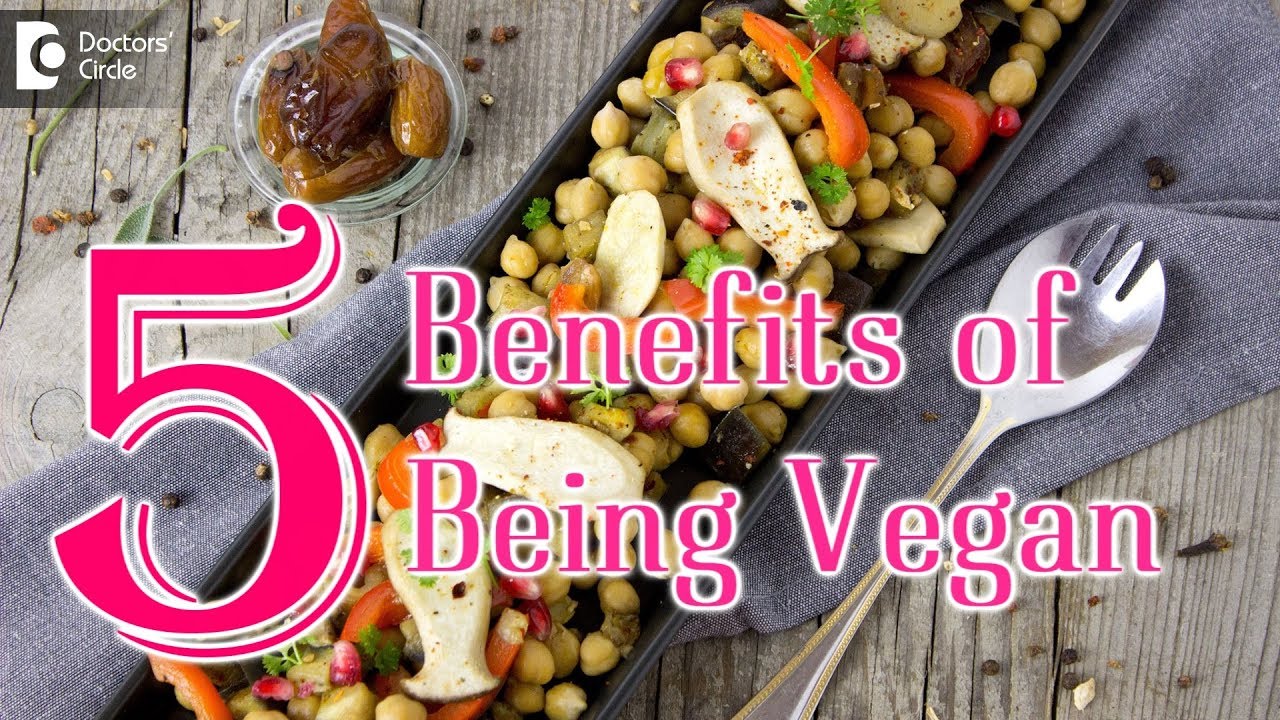The Benefits Of A Vegan Diet - Unlocking The Power Of Plant-Based Eating
In this article, we will discuss the benefits of a vegan diet and why you should consider incorporating it into your lifestyle. A vegan diet involves consuming only plant-based foods and no animal products. This type of diet has gained popularity in recent years due to its numerous health benefits and its impact on the environment.
Author:Suleman ShahReviewer:Han JuMar 01, 20235.4K Shares603.6K Views

In this article, we will discuss the benefits of a vegan dietand why you should consider incorporating it into your lifestyle.
A vegan diet involves consuming only plant-based foods and no animal products. This type of diet has gained popularity in recent years due to its numerous healthbenefits and its impact on the environment.
Introduction To Veganism
Veganism is a way of lifethat seeks to minimize the exploitation of animals and the harm caused to the environment.
This is achieved by avoiding all animal products, including meat, dairy, eggs, and honey. The vegan diet is based on plant-based foods such as fruits, vegetables, whole grains, legumes, and nuts.
The Benefits Of A Vegan Diet For Your Health
One of the main benefits of a vegan diet is its positive impact on health. Research has shown that a well-planned vegan diet can reduce the risk of chronic diseasessuch as heart disease, type 2 diabetes, and some types of cancer.
Lowers The Risk Of Heart Disease
A vegan diet can help to lower the risk of heart disease by reducing the levels of unhealthy cholesterol in the blood. This is because vegan diets are typically low in saturated fat and high in fiber, antioxidants, and healthy unsaturated fats.
Helps To Control Type 2 Diabetes
A vegan diet has been shown to help control type 2 diabetes, as it is typically low in saturated fat and high in fiber, which helps regulate blood sugar levels. Additionally, the anti-inflammatory properties of a vegan diet can also help to improve insulin sensitivity.
May Lower The Risk Of Certain Cancers
Research has shown that a vegan diet may lower the risk of certain cancers, such as breast and prostate cancer. This is because a vegan diet is high in antioxidants and phytochemicals, which have been shown to have cancer-fighting properties.
Can Aid In Weight Loss
Many people find that they lose weight when they switch to a vegan diet, as plant-based foods are typically lower in calories and higher in fiber than animal products. Additionally, a vegan diet can help to reduce inflammationin the body, which can contribute to weight gain.
The Benefits Of A Vegan Diet For The Environment
In addition to the numerous health benefits of a vegan diet, it also has a positive impact on the environment.
Reduces Greenhouse Gas Emissions
Animal agriculture is a significant contributor to greenhouse gas emissions, which are a major cause of climate change. By avoiding animal products, vegans can reduce their carbon footprint and help to mitigate the effects of climate change.
Conserves Water
Animal agriculture is a significant user of water, with it taking far more water to produce animal products than it does to produce plant-based foods. By avoiding animal products, vegans can conserve water and help to mitigate water scarcity.
Protects Biodiversity
Animal agriculture is a major contributor to habitat destruction and loss of biodiversity, as vast areas of land are cleared to make way for pasture and crops to feed animals. By avoiding animal products, vegans can help to protect biodiversity and preserve ecosystems.
The Advantages And Disadvantages Of A Vegan Diet
A vegan diet is a plant-based diet that eliminates all animal products, including meat, dairy, and eggs.
While a vegan diet can offer numerous health and environmental benefits, it is not without its challenges. In this article, we will explore both the advantages and disadvantages of a vegan diet.
Advantages Of A Vegan Diet
- A well-planned vegan diet can provide numerous health benefits, including reducing the risk of heart disease, type 2 diabetes, and certain types of cancer. A vegan diet is typically high in fiber, antioxidants, and healthy unsaturated fats, which can help improve overall health. Additionally, a vegan diet can lower cholesterol levels and improve blood sugar control.
- Many people find that they lose weight when they switch to a vegan diet, as plant-based foods are typically lower in calories and higher in fiber. The increased fiber intake can help you feel fuller for longer, leading to fewer cravings and a reduced overall calorie intake.
- By avoiding animal products, a vegan diet can have a positive impact on the environment by reducing greenhouse gas emissions, conserving water, and protecting biodiversity. The production of animal products is a major contributor to climate change and environmental degradation, so eliminating these products can help to mitigate these negative impacts.

5 Benefits of going Vegan - Ms. Sushma Jaiswal
Disadvantages Of A Vegan Diet
- Without proper planning, a vegan diet can result in nutrient deficiencies, such as a lack of vitamin B12, calcium, and iron. Vitamin B12 is only found in animal products, so it is essential to find alternative sources or to supplement with a B12 vitamin. Additionally, calcium and iron are more difficult to absorb from plant-based sources, so it is important to make sure that you are getting enough of these important nutrients.
- Some people find that the limited food options associated with a vegan diet can be unappetizing and lead to boredom. A vegan diet can feel restrictive and may not include some of your favorite foods, which can make it difficult to stick to in the long term.
- Plant-based foods can sometimes be more expensive than animal products, which can make a vegan diet more costly. Fresh produce, especially organic produce, can be more expensive than animal products, making it difficult for some people to afford a vegan diet.
How Is The Vegan Diet Healthy?
The vegan diet is a plant-based diet that eliminates all animal products, including meat, dairy, and eggs.
Despite some misconceptions, a well-planned vegan diet can be a healthy and nutritionally balanced way of eating that provides numerous health benefits. In this article, we will explore how a vegan diet can promote good health.
Rich in Nutrients: A vegan diet can be rich in a variety of essential nutrients, including fiber, antioxidants, healthy unsaturated fats, vitamins, and minerals.
For example, plant-based foods are a good source of vitamins C and E, as well as beta-carotene and other carotenoids.
These nutrients play a key role in maintaining good health and reducing the risk of chronic diseases such as heart disease, type 2 diabetes, and certain types of cancer.
People Also Ask
What Is A Vegan Diet?
A vegan diet is a plant-based diet that eliminates all animal products, including meat, dairy, and eggs.
What Are The Benefits Of A Vegan Diet?
A vegan diet can promote weight loss, lower the risk of heart disease and certain types of cancer, improve insulin sensitivity, and increase antioxidant intake.
What Are The Potential Drawbacks Of A Vegan Diet?
While a vegan diet can be a healthy way of eating, it can also result in nutrient deficiencies if it is not properly planned.
Conclusion
In conclusion, the benefits of a vegan diet are numerous and include improved health, reduced risk of chronic diseases, weight loss, and a positive impact on the environment.
By incorporating a well-planned vegan diet into your lifestyle, you can enjoy these benefits and make a positive difference in the world.
So, if you're looking to improve your health and protect the environment, consider making the switch to a vegan diet today!

Suleman Shah
Author
Suleman Shah is a researcher and freelance writer. As a researcher, he has worked with MNS University of Agriculture, Multan (Pakistan) and Texas A & M University (USA). He regularly writes science articles and blogs for science news website immersse.com and open access publishers OA Publishing London and Scientific Times. He loves to keep himself updated on scientific developments and convert these developments into everyday language to update the readers about the developments in the scientific era. His primary research focus is Plant sciences, and he contributed to this field by publishing his research in scientific journals and presenting his work at many Conferences.
Shah graduated from the University of Agriculture Faisalabad (Pakistan) and started his professional carrier with Jaffer Agro Services and later with the Agriculture Department of the Government of Pakistan. His research interest compelled and attracted him to proceed with his carrier in Plant sciences research. So, he started his Ph.D. in Soil Science at MNS University of Agriculture Multan (Pakistan). Later, he started working as a visiting scholar with Texas A&M University (USA).
Shah’s experience with big Open Excess publishers like Springers, Frontiers, MDPI, etc., testified to his belief in Open Access as a barrier-removing mechanism between researchers and the readers of their research. Shah believes that Open Access is revolutionizing the publication process and benefitting research in all fields.

Han Ju
Reviewer
Hello! I'm Han Ju, the heart behind World Wide Journals. My life is a unique tapestry woven from the threads of news, spirituality, and science, enriched by melodies from my guitar. Raised amidst tales of the ancient and the arcane, I developed a keen eye for the stories that truly matter. Through my work, I seek to bridge the seen with the unseen, marrying the rigor of science with the depth of spirituality.
Each article at World Wide Journals is a piece of this ongoing quest, blending analysis with personal reflection. Whether exploring quantum frontiers or strumming chords under the stars, my aim is to inspire and provoke thought, inviting you into a world where every discovery is a note in the grand symphony of existence.
Welcome aboard this journey of insight and exploration, where curiosity leads and music guides.
Latest Articles
Popular Articles
